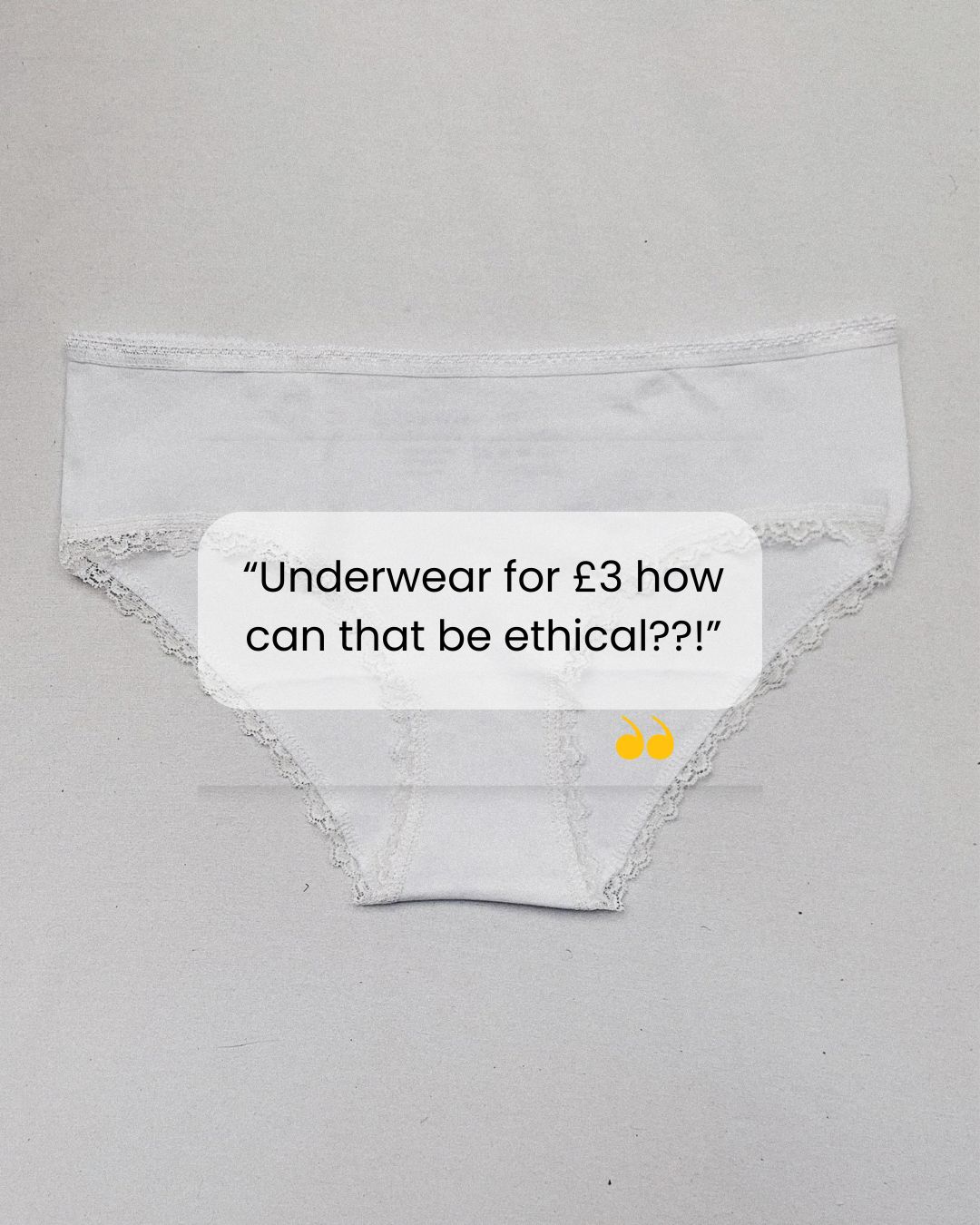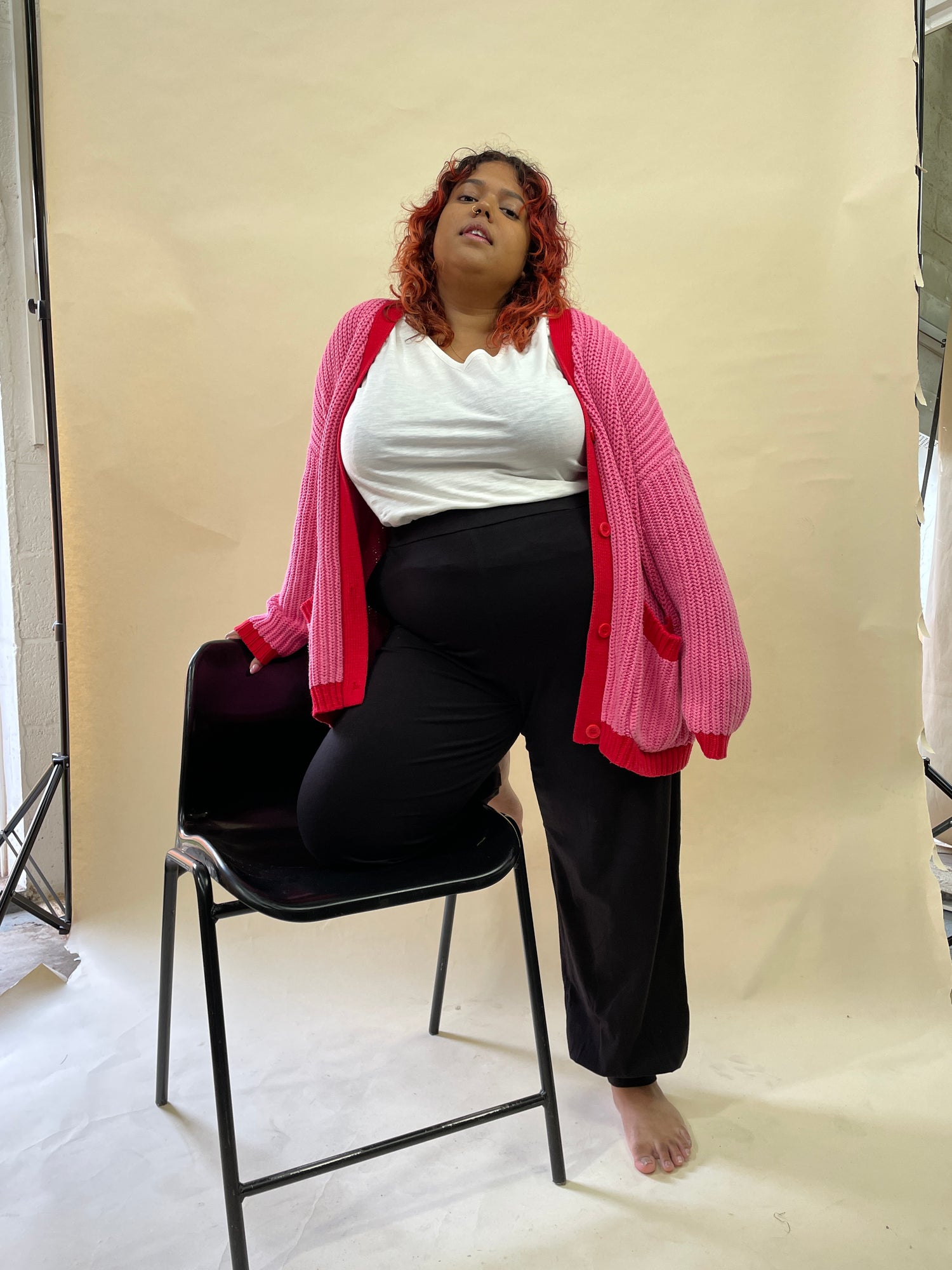Sancho’s is the home of sustainable fashion and ethical lifestyle products. Our Black woman owned business is based in Exeter, UK where we believe in doing better, providing sustainable and affordable clothing options. Through activism and spreading awareness, we are working towards a kinder world. Shop our transparent pricing collection here, our Organic Cotton Bestsellers here and read more about us here.
1 in every 200 people across the world are living in slavery. From the supermarkets we buy our food in to the clothes we wear each day, at some point in their production process, modern slavery was used. Slavery exists in all stages of supply chains in most big businesses.
Modern slavery is an umbrella term for when one person obtains or holds another person in compelled service. This includes forced labour, forced marriage, debt bondage, human trafficking and state imposed forced labour.
Employing 1 in 6 of the workforce, yet only paying 2% of its workers a living wage, the fashion industry as it stands is one of the worst culprits of modern slavery. One of the main contributors to this is China’s mass incarceration of Uighur Muslims in the Xinjiang province. For over 3 years, the Chinese government have forced around 1.8 million ethnic Uighurs and other Turkic Muslim minorities into prison camps, factories and farms in the region. As a result, 1 in 5 cotton products sold globally contain cotton produced by this forced labour. Brands like Nike, Adidas, Huawei and Amazon are among those complicit in using Uighur labour.
In 2015, the UK passed the Modern Slavery Act which requires big businesses to report on the steps they take to tackle modern slavery, but it was found that an astounding 40% don’t comply with the act! But how? And why?
According to Colleen Theron, Director of UK human rights business consultancy Ardea International, ‘whilst the UK Modern Slavery Act has raised some high level awareness of modern slavery risk, the lack of enforcement penalties has led to low levels of compliance and a lack of true buy in by senior leadership’.
Asos revealed that despite a strong Modern Slavery statement and Corporate Social Responsibility message, only 42% of its product portfolio comes from brands that meet its requirements. In addition, despite Tesco and Sainsbury’s topping Oxfam’s Behind the Barcodes campaign in 2019, both supermarkets scored less than 40% on human rights.
In addition, some of the largest household names like L’Oreal, Boots, Ferero, Cartier and Pandora fail to mention child labour in their modern slavery statement, despite offshoring to areas where child labour is prevalent. Retailers like Footlocker and Versace haven’t even gone as far as acknowledging Modern Slavery.
As competition only increases for retailers to offer the lowest possible price, suppliers and their workforce suffer. Farmers not gaining a living wage cannot afford to hire adult workers and turn to child workers or astonishingly low wages.
The processes of offshoring, outsourcing and sub-contracting have created such complex supply chains that even brands with Modern Slavery Statements don’t know whether or not slavery exists in their production processes. No one is held to account until a problem emerges, and when it does, buyers often blame suppliers and penalise them. Currently, brands have a culture of finger pointing, rather than accepting wrong doing and working to improve conditions and pay for the people who produce their products.
Transparency in the supply chain is a vital first step in highlighting where modern slavery exists and the Modern Slavery Act is key in holding brands accountable. However, more needs to be done by both brands and the government to eradicate the exploitation of people in the workforce. The government needs to make the legislation tougher and harder to get out of. Brands also need to carry out more in depth checks on their contractors and subcontractors to make sure working conditions are to a high standard and people are paid a living wage. Without these changes, modern slavery will continue to exist in the shadows of all we consume.
While big corporations have the most work to do in tackling modern slavery, as consumers, we can make positive change. Shopping from brands with good ethics at their core, boycotting brands who fail to acknowledge modern slavery and buying less are small steps you can take to join the fight against modern slavery.
Written by Alice Smith



